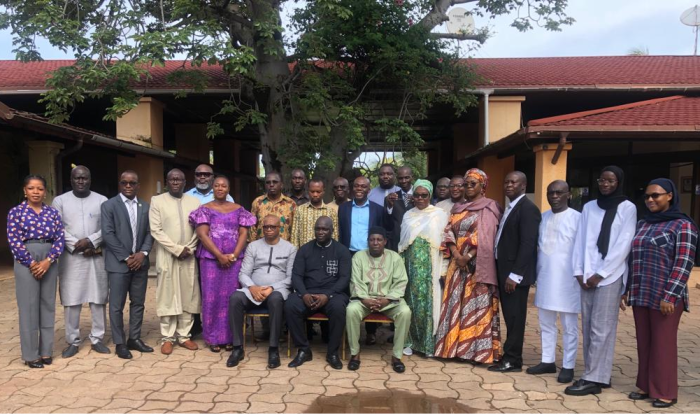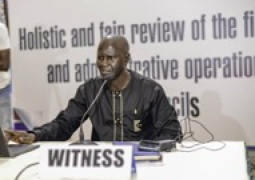
The three-day convergence that brought together partners and stakeholders from countries such as Nigeria, Togo, Liberia, Benin, Cape Verde, Sierra Leone and other countries was held at the Kairaba Beach Hotel.
The forum was organised by the ECOWAS Commission in partnership with TVET experts from the Member States, such as UNESCO, FOSDA and OXFAM, among others.
The main objectives of the TVET programme is to validate the draft action plan based on the ECOWAS TVET Strategy for Skills Improvement and Employability (ETSSIE).
The goals are to incorporate the experiences and lessons learned from the COVID-19 pandemic with consideration to the experiences from the pandemic. The action plan will be strengthened, enabling TVET to better adapt to face current and future challenges, while ensuring a sustainable recovery and increased resilience of the sector in the region.
The forum’s specific goals include analysing the draft action plan based on the ECOWAS TVET Strategy for Skills Improvement and Employability (ETSSIE), identify specific challenges resulting from the COVID-19 pandemic and propose adjustment and adaptation measures in the draft action plan.
It is also to propose specific monitoring and evaluation mechanisms in the draft ECOWAS TVET action plan, to ensure adaptive and sustainable implementation of the action plan in the post-pandemic context. In like manner, it is to promote cooperation, exchange of experience and emerging innovations.
Speaking at the opening ceremony, Prof. Abdoulaye Waga, the director of the ECOWAS Commission from Abuja, Nigeria, revealed that their presence at the forum underscored a collective commitment to shaping the future of Technical Vocational Education and Training (TVET) in the region, as well as driving the socio-economic development that is so essential for their communities. He noted that “unemployment has become a major factor in fuelling social crisis and conflict, resilience and rebellion.
He stated that “ terrorism, crime, and general political instability in the region, where many sectors vital to development are experiencing skills shortages, while at the same time unemployment rates keep increasing.”
He added that “technical Vocational Education and Training (TVET) is a productive response to these challenges, enabling learners to acquire practical skills and competencies that meet the present and future needs of the labour market. As such, it is an avenue for promoting development of nations, social cohesion, enhancing security, poverty reduction and regional integration.”
For his part, Dr. Yusupha Touray, the permanent secretary at the Ministry of Higher Education, Research, Science and Technology, said the formation of human capital in any developing nation has a correlating effect on its national development.
He noted that the nature of economies is dictated by workforces with the right qualifications and skills from tertiary and higher education. He added that the forum will build their human capital through a very effective tertiary and higher education and training process, stimulate growth, and lead to achieving their goals for industrialisation.




